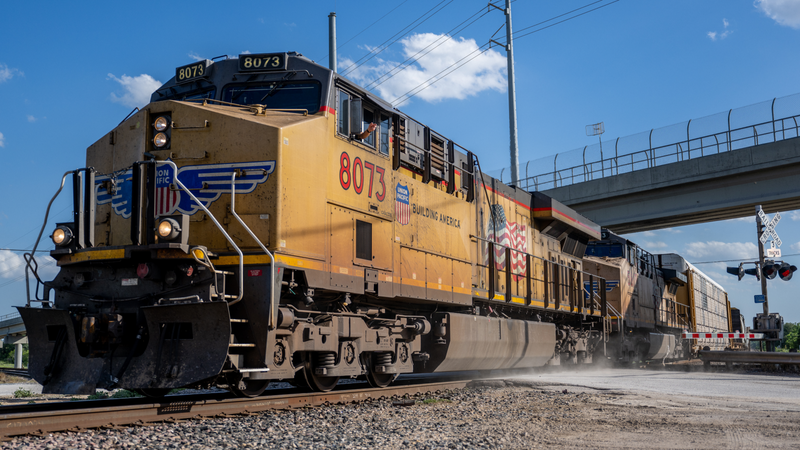Here’s Why Train Horns Sound Far Away Right Before They Hit You

America has a real problem with railway crossings, with the intersection between road and rail causing more than 200 deaths in 2023 alone. While crumbling infrastructure is mostly to blame for the issues Americans have with rail crossings, another reason for the crashes we see on our railroads could be as a result of the way the sound of a train travels.
If you play out the sound of a train horn right now, it’s probably quite loud, right? This is because the sound you’re hearing is moving outwards from the source in a kind of spherical shape. That’s how sound usually travels, but when it’s emanating from the front of a speeding train, it travels completely differently, as Instagram user Big Manny recently explained.
For anyone not familiar with Big Manny, he’s great. In short clips across social media, he breaks down scientific principles in a way that’s super accessible for all kinds of audiences, each punctuated with various “innits” “bruvs” and “you get mes.” In one of his most recent clips, he’s taken a look at the way the sound of a train travels while it’s speeding down the tracks.
He starts by explaining that, normally, sounds from a train horn would travel outwards like a sphere, making it easier for listeners to gauge the direction that the sound came from and the distance away from the source that they are.
However, with trains that can travel at speeds of more than 100 mph, that isn’t the case. As he demos with a model train with some paper strips strapped to the side, the movement of the train impacts the way air travels around the vehicle. The force of the train, Big Many explains, pushes the air out of its path as it moves forward, which also pushes the sound waves from its horn out of the way as well.
As a result of this, the sound of a train’s horn will take much longer to reach you when it’s speeding down the tracks. This means that the locomotive will sound much quieter and much further away than it is in real life. As Big Manny puts it: “if you do hear it, it will be too late.”

 Yahoo Autos
Yahoo Autos 